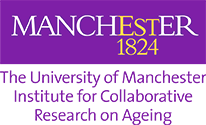Major technology award to address the health issues of an ageing population.
3 October 2016
The University of Manchester has been awarded £5.2m for research into using nanomaterials including graphene in the human body.
It’s one of four major research programme grants just announced totalling £17.7 million to develop new technologies to address the health issues of an ageing UK population.
The grant from the Engineering and Physical Sciences Research Council (EPSRC) entitled ‘2D Materials for Next Generation Healthcare Technologies’ will explore how two-dimensional materials can improve major health challenges, such as dementia, wound healing and cancer. Led researcher Professor Kostas Kostarelos said: “We are looking forward to developing a thorough and systematic understanding of the true capabilities graphene and 2D materials offer in solving current clinical challenges, and maintain Manchester and the UK at the forefront of this dynamic and highly competitive field.’’
Graphene, the world’s first two-dimensional material, was first isolated in 2004 at The University of Manchester. Made of one-atom thick flat crystals, 2D materials have great potential for use in biomedicine. In this project, researchers and industry partners will use 2D materials to develop innovative solutions for specific unmet clinical needs in wound care, neural rehabilitation by electrical stimulation (relevant to dementia); and cell therapeutics.
Further information: Major award for graphene and 2D materials in biomedicine
